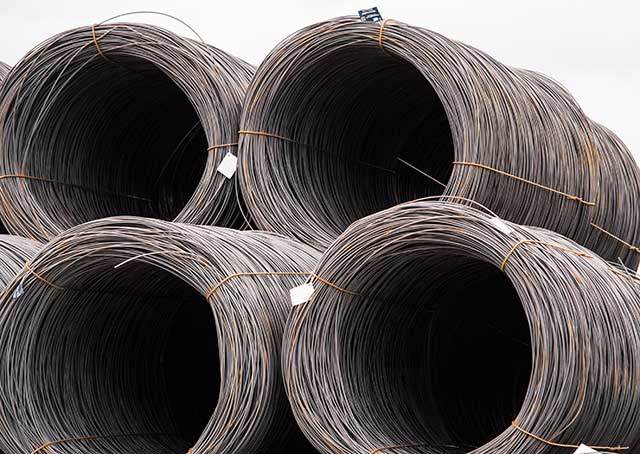Unions: UK Government’s Port Talbot steel plan ‘unacceptable’

Advertisements
Trade unions gave evidence to a Senedd committee about the future of Welsh steelmaking amid concerns for 3,000 jobs in Port Talbot.
Representatives of GMB, Unite and Community appeared before the economy committee after Tata Steel was expected to announce a consultation on job cuts earlier in November.
Alasdair McDiarmid, assistant general secretary of Community, told MSs that Tata held fire due to pressure to examine unions’ plan, which was led by expert consultants Syndex.
He said the unions presented the proposals to a delegation led by T V Narendran and Koushik Chatterje, Tata Steel’s chief executive and chief financial officer respectively.
Mr McDiarmid told MSs the credible alternative was well received and the company is taking it seriously, saying there is no date for a formal announcement as talks continue.
He said: “We had a good debate and we agreed with them to enter into a process of constructive dialogue – and that’s what’s been happening.
“Our experts have been engaging with their technical team, digging into the finances, assumptions and capital expenditure requirements.”
Advertisements
‘Unacceptable’
Paul Davies, who chairs the committee, asked about the timeline for Tata’s plans to implement its provisional agreement with the UK Government.
Mr McDiarmid said all of the unions are united in condemning the proposal and the general consensus across the industry is that it is the wrong approach.
He told MSs: “The deal itself is unacceptable, the way the discussions between Tata and the [UK] government were conducted was unacceptable – with no trade union involvement at all.
“We had assurances from the very highest levels of Tata that no decisions would be made without full consultation with the unions.”
Mr McDiarmid said the leak of the announcement to the press was distressing for members as he described the whole process as a shambles.
He outlined his union’s red lines: protecting the future of steelmaking at Port Talbot as well as downstream operations and no compulsory redundancies.
He criticised plans for electric arc furnace steelmaking, saying it places a massive question mark over the future Trostre works.
Advertisements
‘Green capital’
Peter Hughes, Wales secretary of Unite the Union, criticised the lack of consultation on the deal to close blast furnaces which he said should continue until end of life in 2034.
“Everyone wants to protect Port Talbot for as long as possible,” he said.
“We believe Port Talbot can be the green capital of Europe with the right investment and the right technologies – but, ultimately, Tata needs to talk to us.”
Mr Hughes criticised the uncertainty hoisted on the workforce, saying: “I’ve never known any government give £500m to potentially make 3,000 people redundant – that’s beyond.”
Calling for procurement laws to protect jobs in Port Talbot, he told MSs that demand for steel is widely expected to increase in the next five years
He raised concerns about the tax implications of international steel being “dumped” through the new freeport in Port Talbot.
Advertisements
‘Offshoring’
Charlotte Brumpton-Childs, national officer responsible for steel at the GMB Union, told MSs that the UK plan lacks ambition and fails to secure steelmaking in Wales.
She said a key concern is the lack of a plan for business sustainability or growth, adding that there has been no engagement with the unions from Westminster.
Ms Brumpton-Childs told committee members that the UK Government proposal offshores jobs as well as environmental responsibilities.
During the evidence session on Thursday November 30, she said: “It’s not going to cut emissions ferrying steel halfway around the world to land in the freeport, be rolled through our mills and be called British steel when it won’t be.”
Ms Brumpton-Childs said the just and fair transition proposed through the Syndex report will safeguard jobs, avoid compulsory redundancies and maintain market share.
She called for a joined-up national industrial strategy, saying procurement for security or defence could be required to use UK steel.
Raising concerns about Tata’s losses due to high energy prices, the witnesses urged the UK Government to follow the lead of Germany and France which have capped costs.
Advertisements